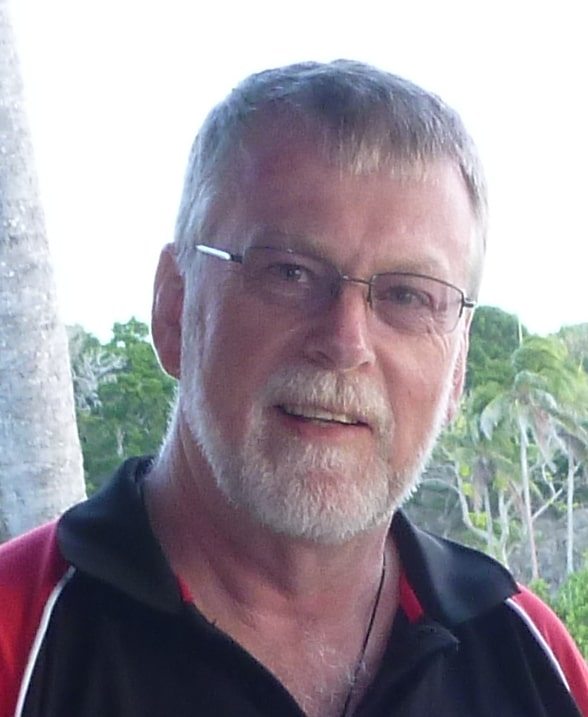Hind-sight, Risk Savvy and the Unexpected
 People often talk about the “benefit of hind-sight”; but does hind-sight prepare us to manage the unexpected?
People often talk about the “benefit of hind-sight”; but does hind-sight prepare us to manage the unexpected?
Hind-sight – it is a good thing right? It helps us make sense of the world right? It sometimes gives us the courage to continue right?
These things are all true. There is much to be gained from looking back. It can help shore up our confidence that we can and have overcome some obstacles in our lives. It can help amuse us and support us when we think of pleasant previous experiences. It may also even give us some guidance and confidence that if previous circumstances are repeated we can make some educated guesses as to future performance.
The problem with that argument is that history (hind-sight) only gives us a “view” of an outcome, a view of a past event; and then only our interpretation, or someone else’s interpretation, of that view. The other thing about hind-sight is that it is like looking in a mirror. Sometimes, in the act of looking back, we are distracted from what is ahead; and also sometimes the mirror obscures our view forward. In other words, looking behind us is not always helpful.
Confession time – few years ago, I used to be one who spread the gospel that "all accidents are preventable"; and I used to back it up with the argument that “since we have all the time we need to investigate this incident, we should have spent a percentage of that time thinking about preventing it in the first place”. My focus was on trying to identify “everything” that could go wrong and on having everyone in that same frame of mind; after all, if we had the power to see everything in hind-sight, the trick seemed to be to use that power to somehow project the future, such that we could see in advance, the unexpected.
Of course, I now understand that I was being blinded by hind-sight bias. I was so wise after the event that I could not see (actually refused to see at the time) the flaw in my approach. My focus was honourable, well meaning, shared by many in the safety profession and I now believe, was wrong.
I now believe that hind-sight is just a bit over-rated. I now think that hind-sight may be leading us astray and maybe we should be more careful with it, particularly when dealing with possible future events.
The thing I now understand more deeply is that people are fallible, they make mistakes and they cannot see everything. People are so easily blinded by their involvement, and their immersion in their work and/ or the other events going on in their lives, that they cannot see the unexpected even as it is about to happen. Often people are so flooded either consciously, or more often unconsciously, by that which surrounds them, that they have a blocked or filtered vision of what may go wrong.
The clue, to the danger of relying on hind-sight, lies in the term “unexpected”. The Thesaurus provides a number of alternatives to the word “unexpected” including: ‘unforseen, unanticipated, unpredicted, surprising, startling, astonishing, sudden and bewildering’. The Encarta English Dictionary gives us more help when it says: ‘something that is unexpected is surprising, because you did not expect it at all, or you expected it to happen in a different way.’ The thing is that if something is unexpected it surprises you because you did not think it was likely to happen.
If a thing or event is unexpected, we only know it has happened, after it has happened. It is through the lens of hind-sight that we become aware of the unexpected and the circumstances which may have brought it about. It now becomes something that, with the benefit of hind-sight, we make the claim that we should have seen the event coming; the event should have been “expected”. Of course it is then too late.
Being ‘risk savvy’ and being prepared for the unexpected is now my preferred approach. Gerd Gigerenzer (an expert in adaptive behaviour and cognition) tells us that:
”Savvy” means acute, astute, and wise. But being risk savvy is more than being well informed. It requires courage to face an uncertain future as well as to stand up to authority and to ask critical questions. (Gigerenzer, 2014, p. 15)
So, one of the keys to becoming better at discerning risk, and the unexpected, is to be constantly challenging the status quo; to be introducing doubt about our capacity to understand the current situation and to doubt our capacity to manage it. We need to be constantly mindful of uncertainty.
Being mindful of uncertainty and what could go wrong and then catching it early before it becomes overwhelming, is the critical consideration. Being able to cope with a situation as it unfolds and then recover from the outcome (being resilient) enables us to better live with risk and the unexpected. High reliability organisations, i.e. those organisations that are prepared for the unexpected, have at their core a ‘collective mindfulness’ about risk and uncertainty (Weick & Sutcliffe, 2007, pp. 9-17).
So how do we develop this collective mindfulness? The key is founded in:
- Ensuring that our people are constantly aware of what may go wrong such that the event is recognised before it escalates to a major event. And also in not getting so carried away by our successes such that we are seduced/ numbed by the sense that we cannot fail;
- Making sure that in our efforts to understand issues we don’t simplify them to the extent that we miss vital data or clues to the unexpected;
- Constantly checking with those at the coal face, those that really know what is happening, to gauge their “feeling” for what may go wrong;
- Developing resilience and being prepared to manage an unexpected event as it unfolds (i.e. having early reporting and well prepared response capacity/ capability); and in
- Ensuring that the people with the expertise to manage an event are those that are given the problem to solve. This means that when an event is unfolding hierarchies and authority levels are flexible enough that deferring to expertise is accepted and egos are held in check.
Hind-sight will provide us with a view of our relative success in managing the unexpected, but not with the capacity to predict it.
It is far better that we become risk savvy; better that we have the courage to question the status quo, to raise doubt, and to constantly challenge our understanding and perception of risk and our capacity to manage it. It is far better that we develop a collective mindfulness and capability to manage the unexpected when it inevitably happens; because if there is anything certain about uncertainty, it is that the unexpected will inevitably happen.
I welcome comments and discussion. If becoming risk savvy, with regard to discerning risk and preparing for the unexpected, is something that you would like to explore, I am happy to chat.
Author: Max Geyer
E-mail: max@viamaxconsulting.com
Web: www.viamaxconsulting.com
Gigerenzer, G., (2014) Risk Savvy: How to Make Good Decisions, Allen Lane, London, England.
Weick, K. E., and Sutcliffe, K. M., (2007) Managing the Unexpected: Resilient Performance in an Age of Uncertainty 2nd ed., Jossey-Bass, San Francisco, USA.



Do you have any thoughts? Please share them below